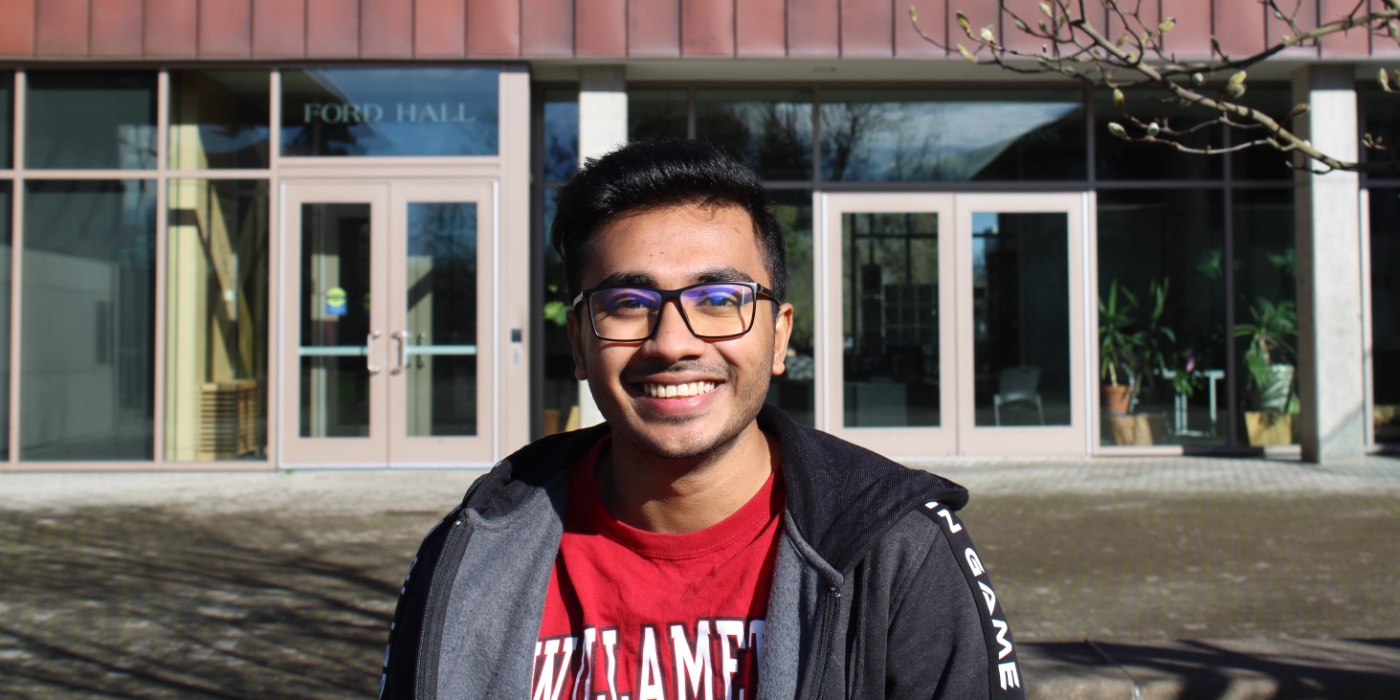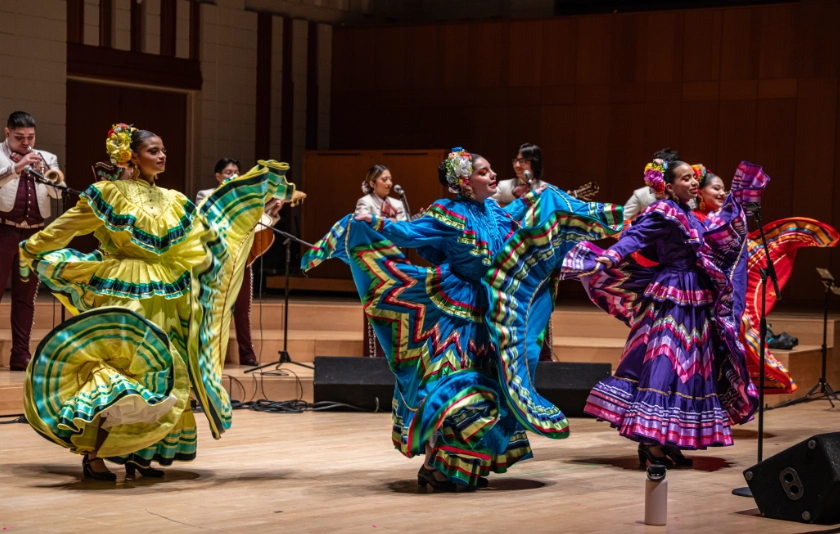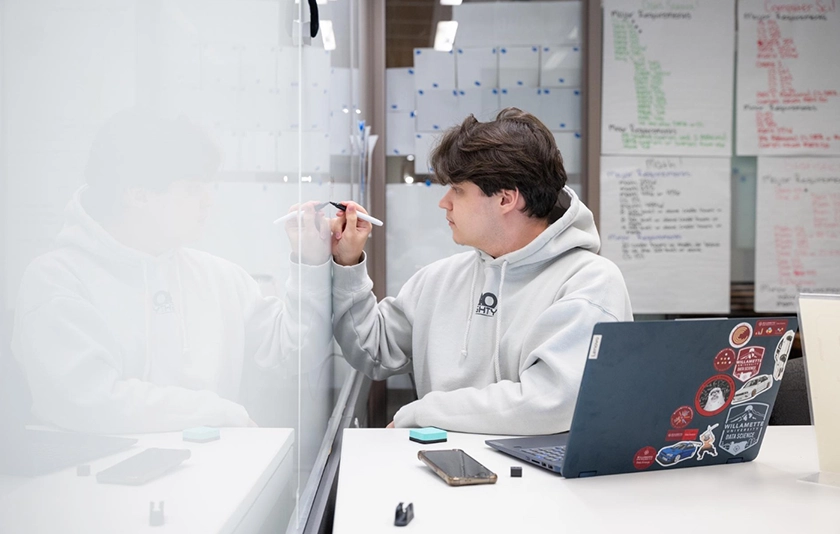When Shouvik Ahmed Antu BS’26 first visited Willamette University, he felt at ease talking with a particularly knowledgeable student. “So, are you a junior or senior?” he asked his new companion. As it turns out, he was actually talking to Assistant Professor of Computer Science Calvin Deutschbein.
Far from taking offense, Deutschbein made Ahmed Antu excited about pursuing his passion for Computer Science at Willamette’s School of Computing & Information Sciences. An international student from Bangladesh, Ahmed Antu was impressed by the approachability of Willamette’s faculty.
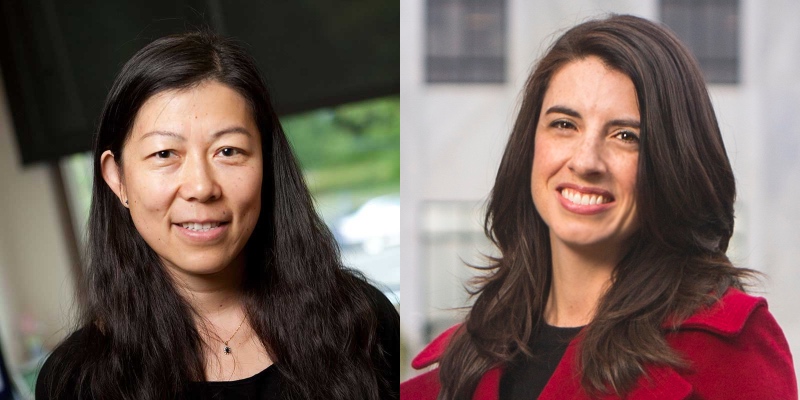
“It was important for me because they were sitting with students and just talking, and it felt like they were students, not faculty members — which is really different from Bangladesh,” Ahmed Antu said. “I have to thank Calvin a lot for that interaction.”
The close relationships he built with his professors turned into an exciting opportunity: an interdisciplinary summer research project as a first-year student exploring artificial intelligence with Professor of Computer Science Haiyan Cheng and Professor of Civic Communication and Media Cindy Richards. The project was part of a wide array of activities supported by a $1.94 million grant from the U.S. Department of Education to expand data and computer science opportunities at Willamette.
Ahmed Antu’s experience working directly with faculty was just one of many examples of Willamette’s myriad undergraduate research opportunities. The chance to do real research was as new as it was exciting.
“I had never done anything like that and I didn’t know how to do research,” he says.
Working across disciplines
Over the course of the summer, the three collaborators looked at how college students could conduct research using ChatGPT, the popular large language model powered by artificial intelligence. The work led to a paper they presented at the International Conference on Artificial Intelligence in Education in 2023.
“It’s energizing to work across disciplines with Shouvik and Dr. Cheng, who are brilliant in their fields and fantastic collaborators,” Richards said. “Student perspectives are essential to understanding the relationship between technology and education, and insights from our collaborative work help me build better learning opportunities at Willamette, as well as contribute to conversations beyond campus.”
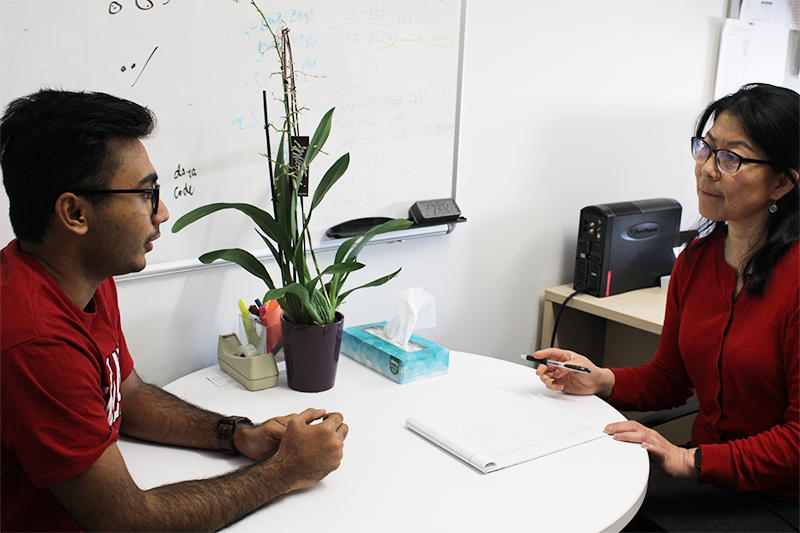
The team plans to build on the research. Richards is developing a framework for integrating GPTs into courses, and extending her scholarship on digital citizenship to engage AI. Ahmed Antu says that he wants to work on a follow up paper to reflect the rapidly evolving challenges and capabilities of AI. Ultimately, Ahmed Antu hopes that the work will help his fellow students engage more effectively and mindfully with AI tools like ChatGPT in their own research.
I hope this research will raise awareness about the impact of AI on education. It's crucial to recognize both the positive and negative effects and address them accordingly,” Cheng said. “I encourage everyone to embrace change, focusing on the positive benefits AI brings to our daily lives, enhancing learning, and improving productivity.”
An empowering experience
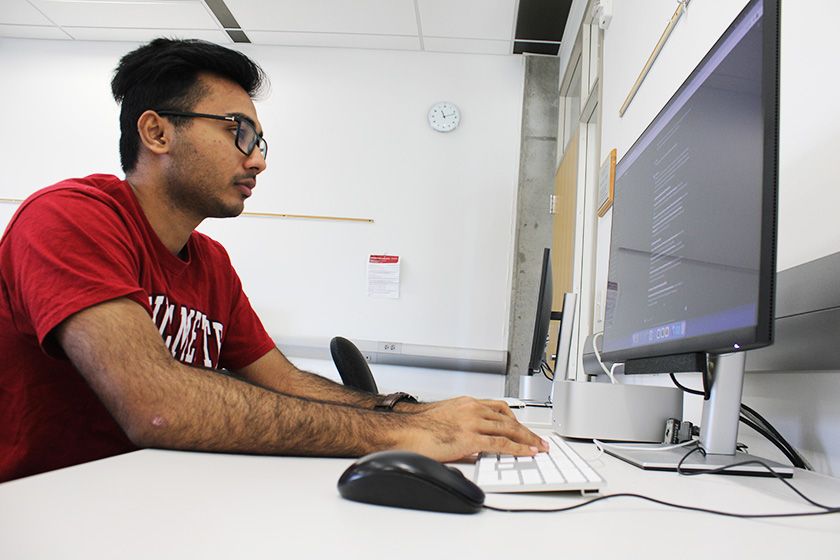
While he started the summer as a novice researcher, Ahmed Antu’s hands-on experience collaborating with faculty has given him the confidence to pursue a PhD in AI/Machine Learning domain. He thinks Willamette’s holistic liberal arts approach to computer science will help him cross disciplinary boundaries and solve problems using both technical and non-technical skills.
“That's why I really love going to a liberal arts college,” Ahmed Antu said. “I can learn from these courses and then I can use my computer science knowledge and technical skills to make something that is helpful for everyone.
